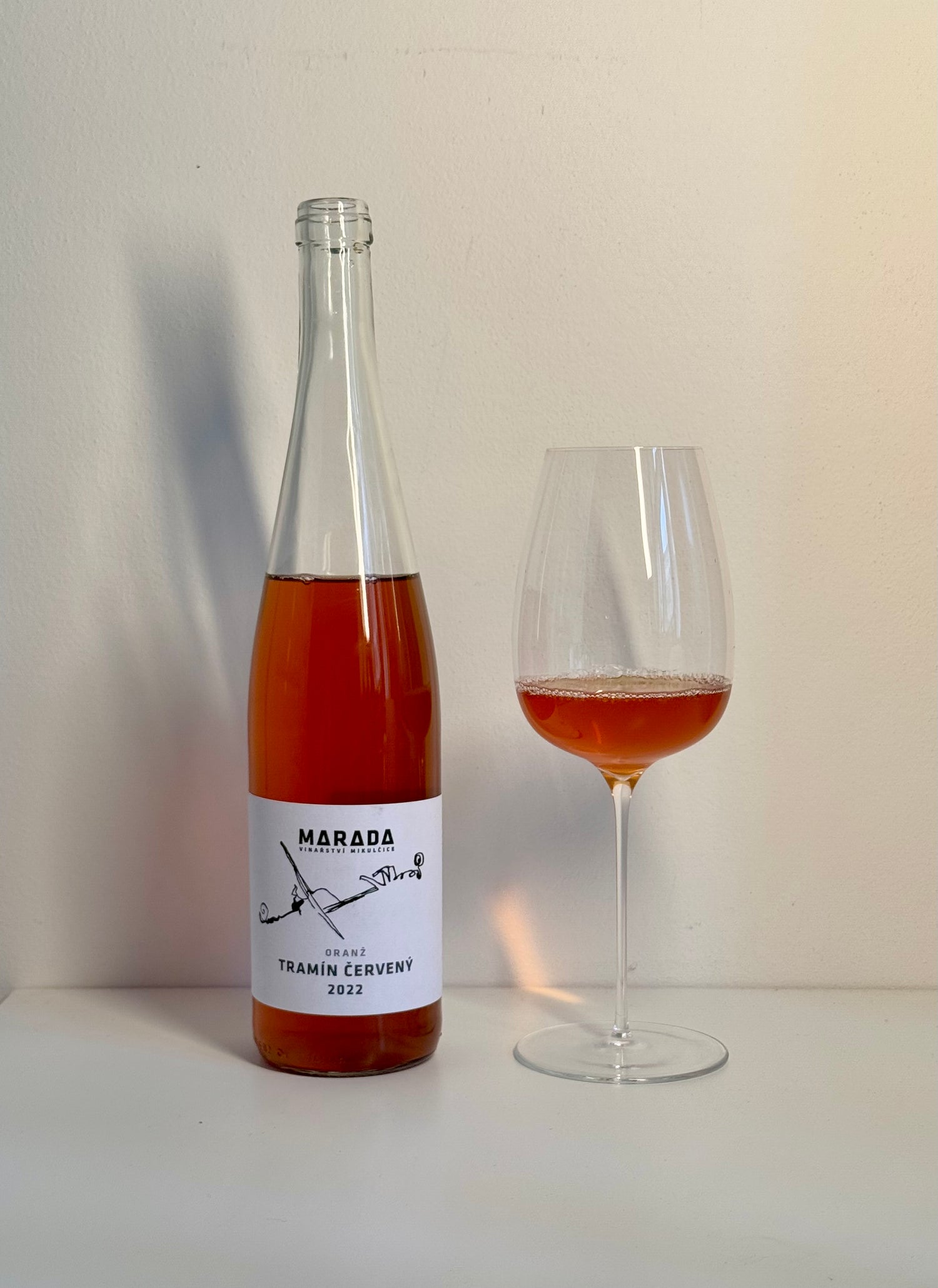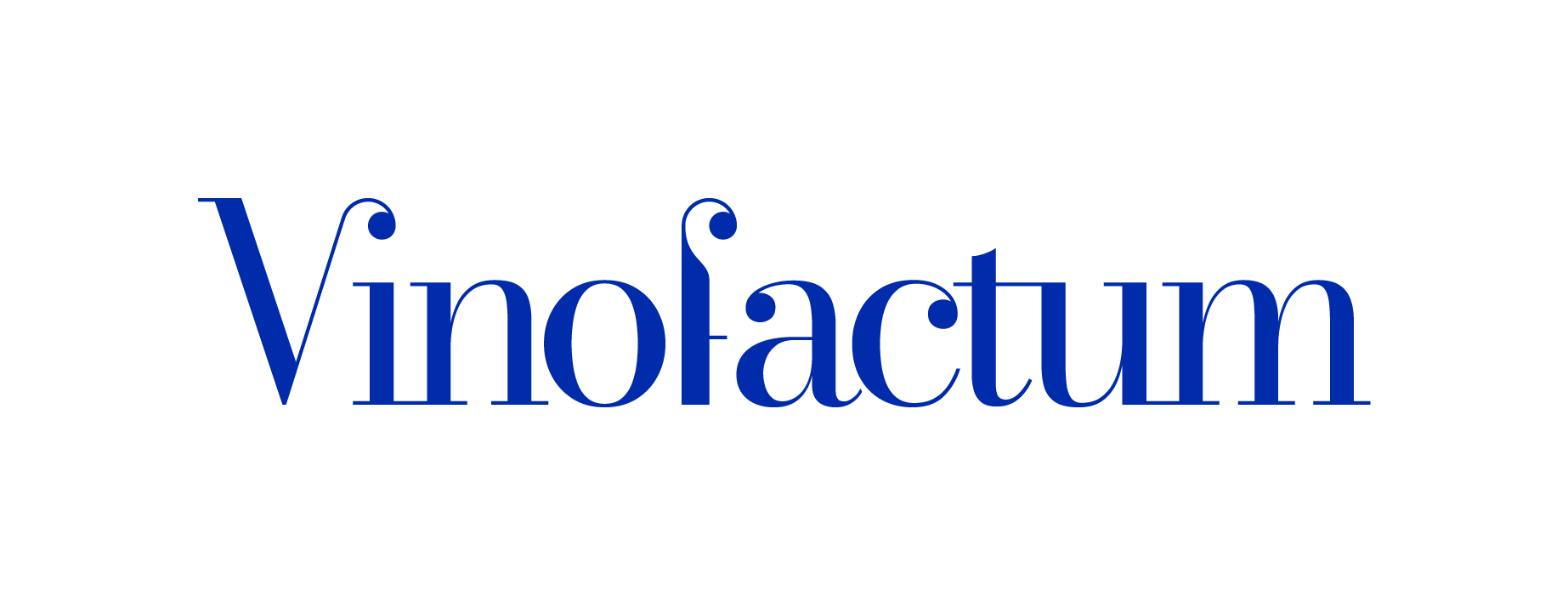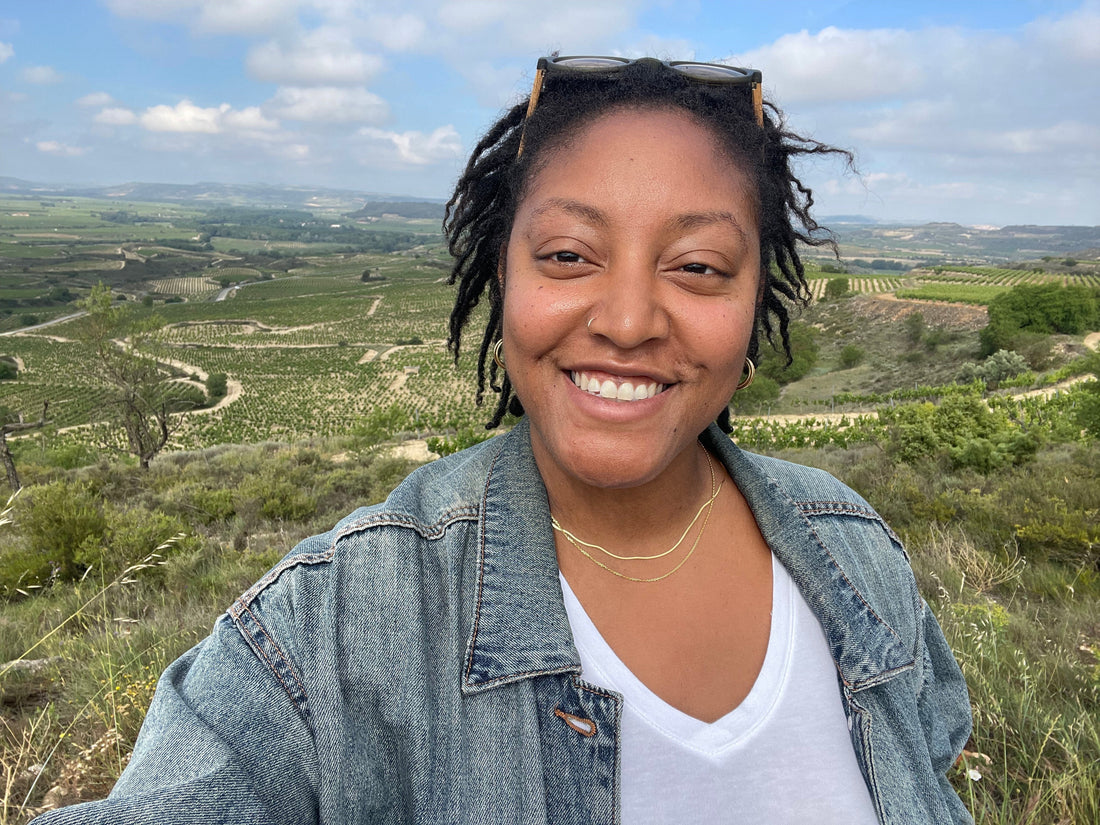Motherhood will shake you to your core. Add to that the challenge of working in the wine industry, which often feels at odds with parenting, and adjusting to this new identity becomes a double whammy. Janice Brockenberry, who welcomed her son Commodore in 2024 has taken it all in stride, though.
As a wine writer stepping into motherhood, the impact reverberated through every facet of her life, including her career. Gone were the carefree days of wine tastings, last-minute plans, and late-night work dinners. With less free time—and less wine—she’s had to reimagine her relationship with her craft.
Having cut her teeth at Newsweek before building a name in the U.S. wine writing scene, Janice brings both journalistic rigor and bubbly wine expertise to her pieces. She proudly boasts bylines in some of the wine industry’s most visible publications. Since becoming a mother last year, she has welcomed a new perspective on how productivity and thoughtfulness can coexist. Janice sits down with us to discuss support systems, setting boundaries, and how constraint can sometimes be the best muse.
Interview by Lauren Johnson-Wünscher, Berlin-based wine and food writer / Images courtesy of Janice Brockenberry
What first attracted you to the wine industry? How did you get your start?
My career as a journalist started out as a writer for Newsweek. I covered entertainment and culture, breaking news, public affairs, health and science, marijuana reform. It was an "all hands on deck" newsroom, which meant we had to be flexible and willing to tackle whatever beat that needed attention at any given moment. Throughout my time there, it was common for me to stop by my local wine shop for a bottle after a long day. I loved how immersive wine could be in that you could take a sip and be transported to another place and another time. As my interest in drinking wine grew, so did my thirst for knowledge. I started reading wine magazines, following the industry solely as a spectator who appreciated a quality glass. And one day it hit me: I'm a writer. I could be writing about wine, too. This realization came at a time when I was really starting to burn out at my day job. I attempted to cover wine for the publication I was already working for but there didn't seem to be much interest in those kinds of stories--though I did get to write a couple of wine pieces and even created a rosé guide for a spring issue of the magazine. Then in the midst of the 2020 racial protests surrounding the death of George Flloyd I got my first shot. Erica Deucy, who was an editor at VinePair at the time, reached out to me on Instagram about potentially writing a story for the website, and I jumped at the opportunity. I was able to write a few pieces for VinePair and a year later, I was tapped to join the Pix.Wine team. Although that ended quicker than I would have hoped (Pix shut down in 2022), I haven't given up on wine writing. I continue to freelance for a few different publications including Wine Enthusiast, SevenFifty Daily, Full Pour magazine, and Essence, among others.
What challenges have you faced in establishing your voice and authority in the wine world, and how have you overcome them?
I think the biggest challenge was in conveying that I knew enough about wine to deserve to be here writing about it. I was fortunate to have my previous work experience to lean on. To be a journalist is to be flexible. You never know what the news is going to bring, and you need to be able to write the story no matter what it may be. If you can answer the "who, what, when, where, and why," then you can write about anything, and I think my time as a reporter working in a newsroom really helped me enter the wine industry with confidence. As someone who entered the industry with no wine training or experience, I knew that I would have to rely on my sharp reporting to establish my voice as a wine writer. Starting the WSET program and passing Level II with distinction was also a big help in that it gave me more credible knowledge to support my confidence as a writer focusing on such a specific topic.

Have aspects of your writing or storytelling changed since becoming a parent?
I take a lot more time on a story now. I don't procrastinate on getting a story done like I used to simply because I don't have the time to procrastinate, which is definitely for the better. Slowing down, building a story out little by little, and taking more time has given me the opportunity to grow as a writer because I'm spending more time immersing myself in whatever I'm writing about, reading everything I can to help inform my story, thinking about what it is I'm trying to convey, writing and rewriting the story. I've found that the writing I've completed so far this year is more layered and complex compared to before.
What boundaries around work have you learned to set (related or unrelated to your new role as a mother)?
This is a tough question to answer being that I've only been a mom for a little under a year, and I've only written a handful of stories since giving birth. I knew that I wanted to dedicate the first year of my son's life to being with him, really digging my toes into motherhood and trying to understand and grow into this new version of myself while providing him with undivided attention. Now that he's getting older, I am allowing myself to spend more time thinking about work than before, and I recently started attending industry events and tastings once or twice a month. In a sense, I guess the boundary around work in this current season of my life is that I haven't let it interfere with my goals as a new mother and I haven't allowed my career aspirations to overshadow that deep desire I had to dedicate this first year of my baby's life solely to focusing on him. If I have to write, I do it when he's sleeping. But when he's awake, it's all about him.

How has having a child changed your relationship with wine?
I certainly don't drink it as much as I used to. I've regulated weekend evenings to opening a bottle of something, but I do miss pouring a splash here and there on a Tuesday night while cooking dinner or cracking a bottle open of bubbly for breakfast while I clean my apartment on Saturday mornings. But I do think since having a child my relationship with wine has just become more intimate and focused. As a consumer I'm a lot more specific with my purchases, willing to spend more for something of a higher quality. If I'm going to drink now, I want to be wowed, excited, deeply interested and incredibly aware of what I'm drinking. So I'm spending a lot more time considering the regions and producers I'm supporting. I'm going out of the way to look for organic, regenerative, and biodynamic wines made by small producers (especially those from under-the-radar regions), and I'm more willing to spend more money on a bottle because I'm essentially buying a lot less than before simply because I'm drinking less.
How has having a child changed your relationship with work?
I think having a baby has shifted my priorities a bit. I care deeply about my work and my career, and I still consider myself an ambitious woman, but there was once a time in my life where I thought that work was the most important thing and that it was my work that made me who I am. Now I've realized that work is simply a means to provide for the thing that is actually the most important, and that's family. Work allows you to feel a sense of achievement in your skills and ability to complete things you want to do, which is important for personal growth and accomplishment. But there is more to life than work, and I think my baby helped me understand that. I do think, for me, it's for the best to have realized that too because now I am working with more intention and purpose than I was before. If anything, having a child just made me care more about the work that I do, and it's made me more diligent in ensuring that the work I do is serving as an example of what women (especially Black women) are capable of.
As a Black woman in a traditionally white, male-dominated industry, how do you navigate your identity both personally and professionally?
I think it's important to be as true to yourself as possible in all spaces and to be your authentic self with conviction. I know what I know. I don't try to pretend to know what I don't, and I ask questions when I am genuinely interested enough to want to know what I don't. Regardless of what anyone else thinks, I know the woman my parents raised me to be and what I'm capable of, and I do have the bylines to prove it, which is a real confidence boost too. I try to keep that in mind when I end up as one of a few (or the only person) that looks like me at a wine event.

Have you found support systems within or outside the wine community that have been particularly important to you as a new mom?
Yes I have. Besides my family and friends, my neighbor, who's baby is just two months younger than my son, has been a great shoulder to lean on during this time of life, especially since we're experiencing so many of the same things. There are a few women in the wine industry who have children as well that I'm close to, and they have been incredibly helpful, whether it be in their efforts to get me out the house and away from my baby for a few hours for a good meal and a good glass or in their sage advice on how to navigate the industry as a mom. These particular women, who are very accomplished and successful mothers in their own right, have always been a bright spot along my career path. They've challenged me to grow professionally and personally over the years, and since having a baby it's become very clear that they intend to keep helping me push forward, which I truly appreciate.
How do you envision your role as a wine writer evolving (or growing) in the coming years?
This is something I'm finding myself contemplating more and more as my son nears his first birthday. While there's still some uncertainty on whether or not I want to continue freelancing or try to find a staff position at a publication, I do know that I want to stick to wine writing. I know that the industry is experiencing a bit of a downturn with slumping sales, tariffs, supply chain and climate change issues, but I know I want to be one of the people that continues to shine a light on wine and the people and places that produce it. I know that I want to continue to work to help more people who look like me discover wine, and I think writing about it is the best way I can do that.


